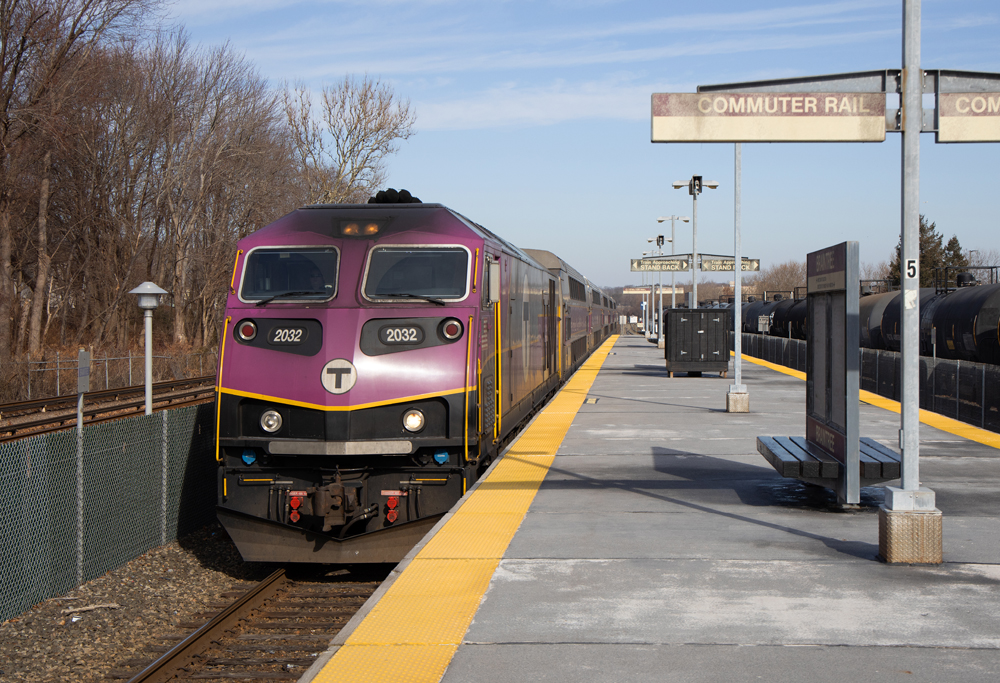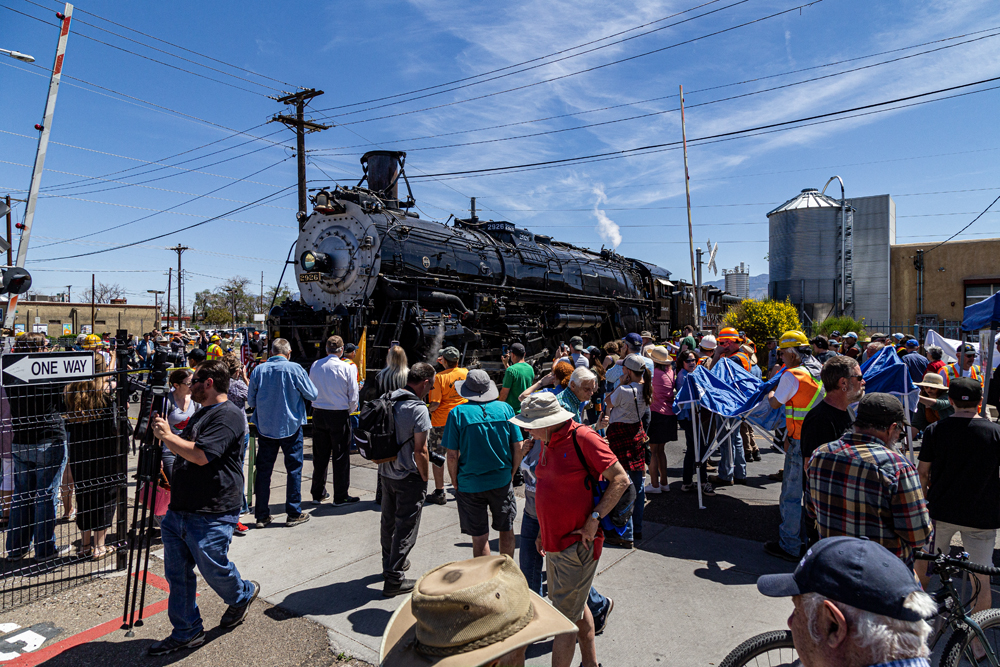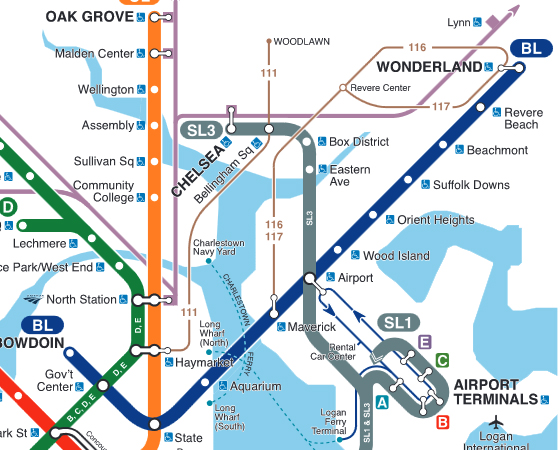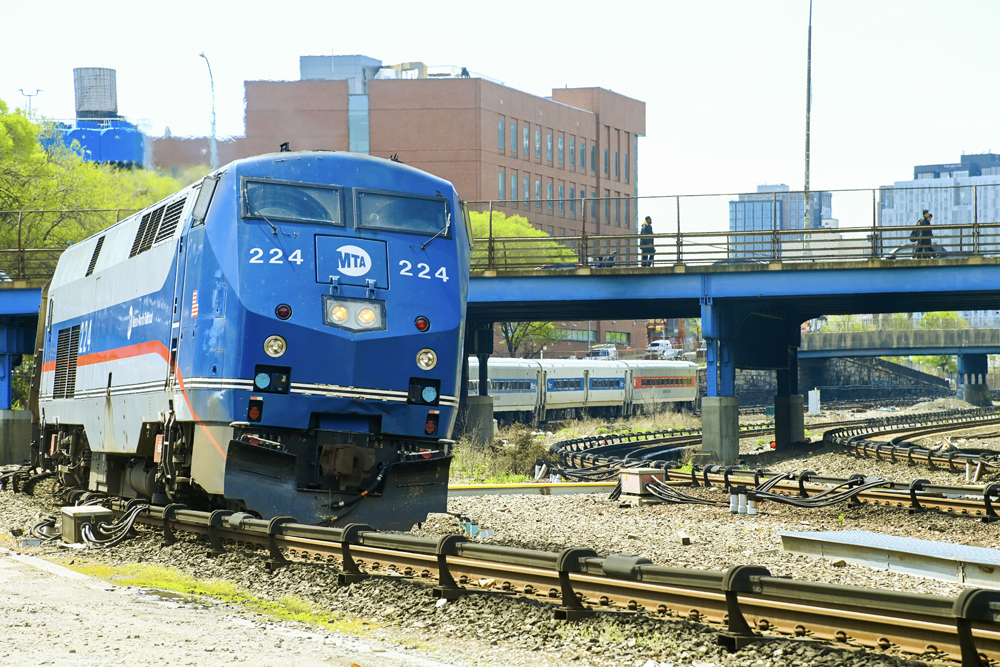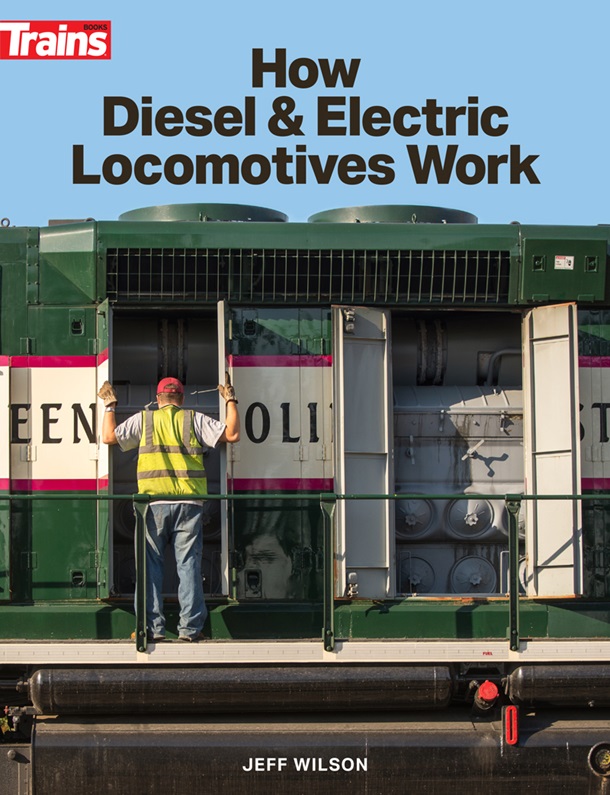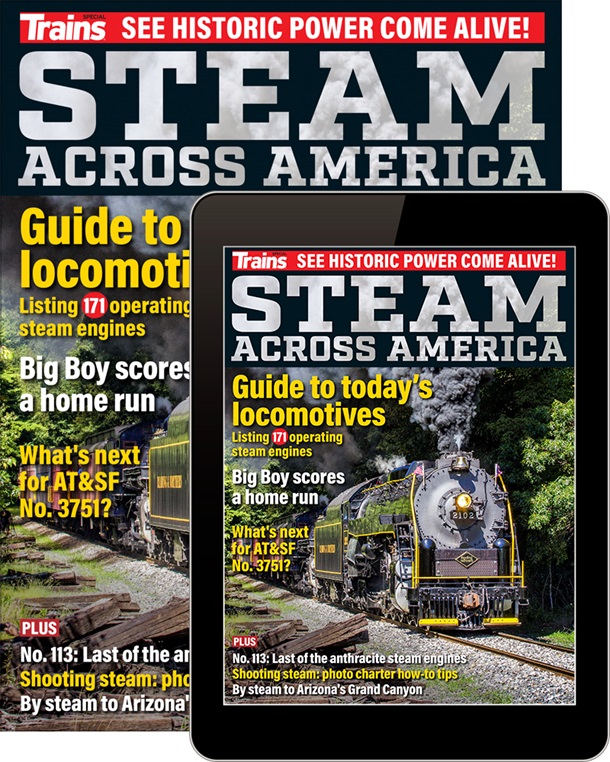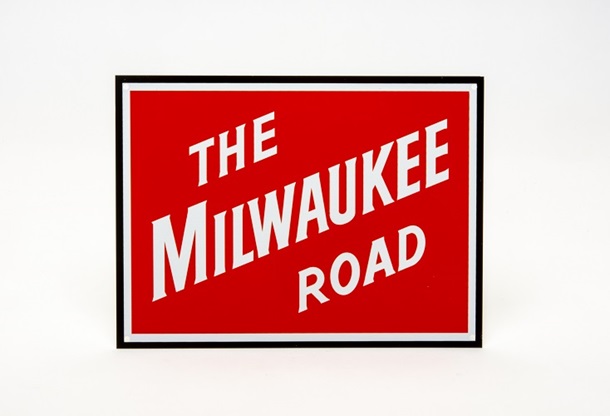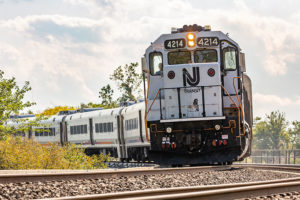
Russell Sullivan
NEWARK, N.J. — “It’s NJ Transit’s 3rd summer of hell,” read an August 2019 headline on NJ.com, a New Jersey local news website. For years, commuters endured overcrowded trains, late trains, canceled trains, and creaky 40-year-old Arrow III electric multiple-unit cars.
Frustration reached a boiling point, with New Jersey Gov. Phil Murphy feeling the heat. He’d campaigned on fixing NJ Transit, calling it a “national disgrace.” Among his first acts after taking office in January 2018 was to ask Kevin Corbett to run the agency.
Corbett is a Navy man, who continues to serve as a volunteer for the U.S. Naval Academy. In civilian life, he’s worked on high-profile economic development projects for New York state, including Moynihan Station and the recovery of lower Manhattan after the attacks of 9/11.
When Murphy called, Corbett was a vice president at the global transportation infrastructure firm AECOM. At first, he demurred, offering three other names to the Democratic governor. But Murphy wanted him.
“He said, ‘Just do what you got to do,’” Corbett told Trains News Wire in an exclusive interview. “‘But for god sakes, please do it as quickly as you can. I’m getting killed.’”
When Corbett came on board at the nation’s third largest transit system, following repeated turnover in the executive suite, the agency had no long-term strategic or capital plan. The new CEO led an assessment of most critical needs. In 2020, NJ Transit’s board of directors adopted a 10-year strategic plan and a $17 billion, 5-year capital plan.
“So right now we’ve got over $4 billion of work underway,” Corbett says. That includes the long-awaited, finally funded replacement for the Portal Bridge, a problematic structure on the Northeast Corridor.
Major capital investments start with 113 new multilevel electric multiple-unit cars, locomotive overhauls, and the purchase of 25 additional Bombardier ALP-45A dual-powered locomotives. Infrastructure projects include replacing the Raritan River bridge, new stations at Elizabeth and Lyndhurst, and a $190 million renovation of Newark Penn Station.
“Financially, we’re in good shape. We don’t have debt because we don’t issue bonds,” Corbett says.
The Amtrak-owned Corridor hosts one of NJ Transit’s 10 commuter rail lines, from New York Penn Station to Trenton, N.J. There, too, Corbett faced an issue. “When I came in, we were at war with Amtrak,” Corbett reveals. He says the relationship is now much improved after he told his staff, “You’ve just got to make it work.”

NJ Transit
Prior to 2020, NJ Transit carried 393,000 rail and light rail passengers out of a total weekday ridership exceeding 900,000. But the agency didn’t have enough locomotive engineers and was woefully behind schedule on its rollout of positive train control.
Corbett sped up crew hiring. To date, 94 engineers have graduated from NJ Transit’s training course.
Although it was rider complaints that made news headlines, the most serious problem facing Corbett was the rollout of PTC, which was in danger of not meeting the federally mandated Dec. 31, 2020, deadline.
To tackle the problem, Corbett set up a war room at NJ Transit’s headquarters adjacent to Newark Penn Station and, in military fashion, named the PTC program “Operation Seabiscuit.”
Why Seabiscuit, the famous racehorse? “It is where you come from behind,” explains Corbett. “That just struck me as an appropriate metaphor.”
The CEO credits his military training for a successful outcome. “You know how to be flexible,” he says, and “how to execute under pressure.” [Corbett further discusses the PTC effort in the Trains Interview in the magazine’s April 2021 issue.]
Corbett is deeply immersed in the rail industry. He’s a founding member of the Commuter Rail Coalition and currently serves on the Northeast Corridor Commission. Internationally, he’s on the policy board of the International Association of Public Transport (UITP). Those positions enable sharing information with other transit systems in the U.S. and around the world, which Corbett says was helpful in dealing with the COVID-19 crisis.
But, he worries about the pipeline of experienced managers in transit and railroading. “There’s a real shortage of executive senior talent in the industry,” Corbett says. Last year, NJ Transit’s head of rail operations, Raymond Kenny, died from the coronavirus. He’d come to NJT in 2019 after a 50-year career with the Long Island Rail Road. Many other senior industry executives are at retirement age.
Commuter rail ridership on New Jersey Transit remains mired around one-fifth of normal, but Corbett is optimistic it will recover. And he wants those commuters to experience a different New Jersey Transit.
“It’s nice to say we’re a turnaround story. The main thing now is to make it sustainable,” says Corbett. “We want to be a best-in-class system.”
— Corrected at 10 a.m. to include Portal Bridge work in current capital spending.






